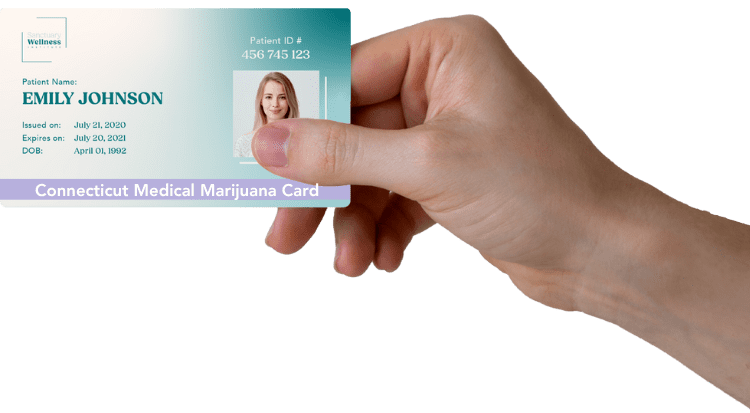Get a Connecticut Medical Marijuana Card Online
| New Patients $175 |
| Renewals $99 |
| ✔ Telehealth appointment |
| ✔ Helpful, real person support |
| ✔ Connecticut-licensed physicians |

Full refund if the physician finds you ineligible
Pay in 4 installments. Call to use Afterpay
| New Patients $175 |
| Renewals $99 |

| ✔ Telehealth appointment |
| ✔ Helpful, real person support |
| ✔ Connecticut-licensed physicians |
Pay in 4 installments. Call to use Afterpay
Call with questions or to schedule by phone (959) 245-1716

















